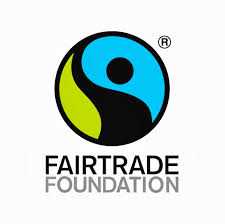Coffee is notorious for being a boom and bust commodity. The small scale farmers that make up the majority of global coffee production remember all too well the calamity of 2001 when prices plummeted to 45 cents a pound, throwing hundreds of thousands of farmers and landless workers into poverty or destitution.
More recently, in May 2011, the price of Arabica coffee on the New York futures market hit a 34-year high of almost US$3.09 per pound. Prices skyrocketed amid fears of a predicted coffee shortage in Brazil and Colombia.
This volatility was exacerbated by speculators betting aggressively on price fluctuations from the safety of their computer screens.
But, as if to justify its volatile reputation, the coffee price has plummeted in 2013 to less than US$1.10 per pound – nearly 65 percent off the 2011 high. Commodity markets are reacting again to possible oversupply in Brazil where a bumper crop is predicted for the second year running.
The price collapse this year is particularly unwelcome for farmers in Central America, Colombia, Ecuador and Peru where leaf rust, a fungal disease that destroys coffee trees also known as La Roya, has already wiped out up to 30-40 percent of the crop, according to the International Coffee Organization (ICO).
The CLAC, the producer network representing Fairtrade producers in Latin America, conducted research with 47 Fairtrade producer organizations in Central and South America. Roughly 81 percent of smallholder producers and their families have been affected by coffee leaf rust, and of these farmers more than half of the total area of their coffee farms was affected in the 2012-13 harvest.
During this tumultuous time, coffee farmers are seeking stability – and many find it in Fairtrade, the only certification scheme that provides a safety net to protect farmers from the worst effects of price volatility. Fairtrade works with 360 Fairtrade certified coffee producer organizations, representing more than 580,000 farmers growing coffee on two hectares or less.
Two thirds of these are in Central and Latin America.
“Now, in a price free-falling system, like the one we are in, Fairtrade generates a base price, which really helps us, especially in a time like now,” said Fatima Ismael, General Manager at Soppexcca, a Fairtrade cooperative in Nicaragua. “It gives us stability for our families.”
Fairtrade certified cooperatives can count on at least the Fairtrade Minimum Price of US$1.40 per pound for washed Arabica coffee sold on Fairtrade terms (30 cents more if organic), plus an extra 20 cents per pound Fairtrade Premium to invest as they see fit, 5 cents of which is dedicated to productivity and quality investments.
These tools protect small scale farmers from sudden price drops and give them the confidence to budget for next season’s farm and household expenses and drive development in their communities.
Most Fairtrade farmers affected by leaf rust are taking matters into their own hands to combat the scourge.
Fairtrade producer organizations are investing in plant nurseries to cultivate and distribute millions of disease-resistant coffee saplings, programmes to analyse and revitalise soil fertility, and supporting income diversification initiatives to reduce dependence on coffee.
Some farmers are also responding by instituting programs to adapt to climate change, a possible contributor to the severity of leaf rust.
“We are turning our farms into more sustainable ones. This can be illustrated now, when we are having the problem with la roya, if you compare the organic farms to the conventional ones and see that they are in much better shape,” said Sonia Mercedes Vasquez, Head of Technical Department at COMSA, a Fairtrade cooperative in Honduras.
“Our plants are much more resistant to this plague, because they are better fed and also because we are polluting the environment less.”
While farmers can count on the Fairtrade Minimum Price, access to finance is a continuing challenge for many.
Fairtrade International has set aside an initial fund of $50,000 to kickstart leaf rust projects; and the Fairtrade Access Fund, with over $20 million currently committed for mid- to long-term financing, has approved two loans and is evaluating other applications for renovation in response to leaf rust.
Fairtrade is also working with financial firms, such as Swiss-based responsAbility Investments AG, to help producers access funding for farmers to combat leaf rust.


















